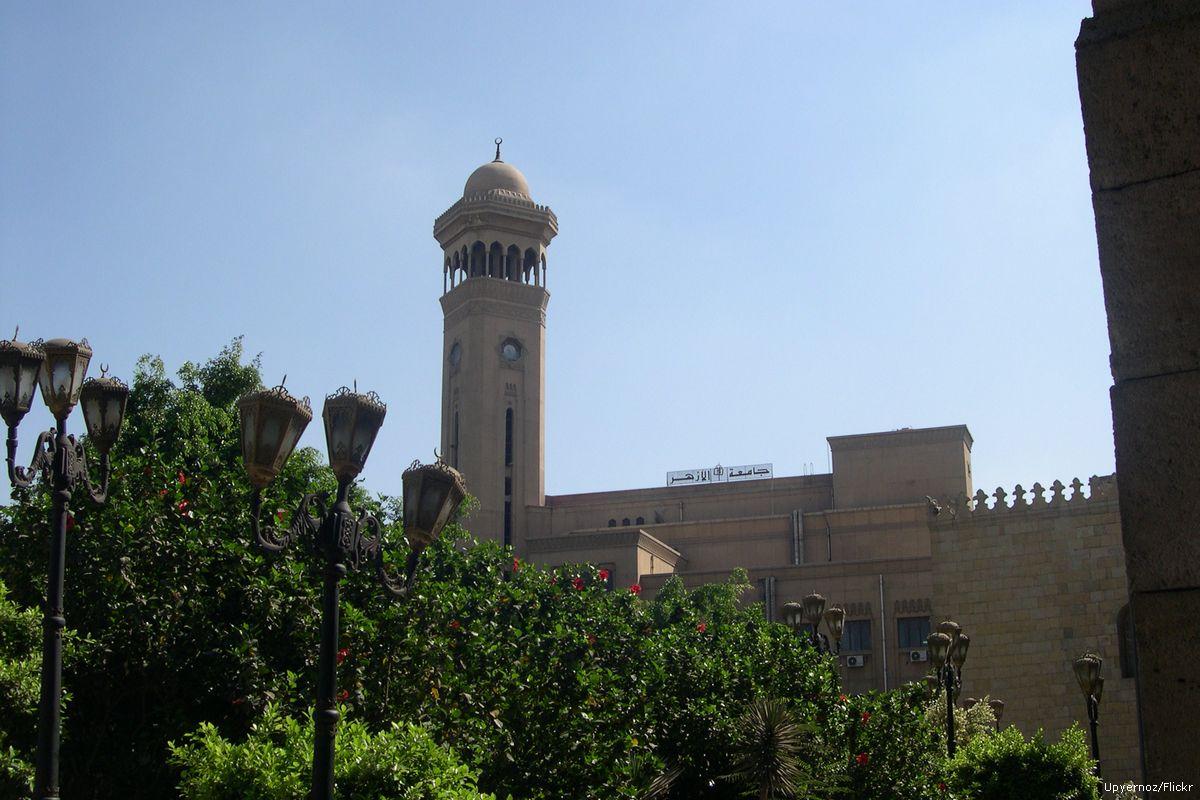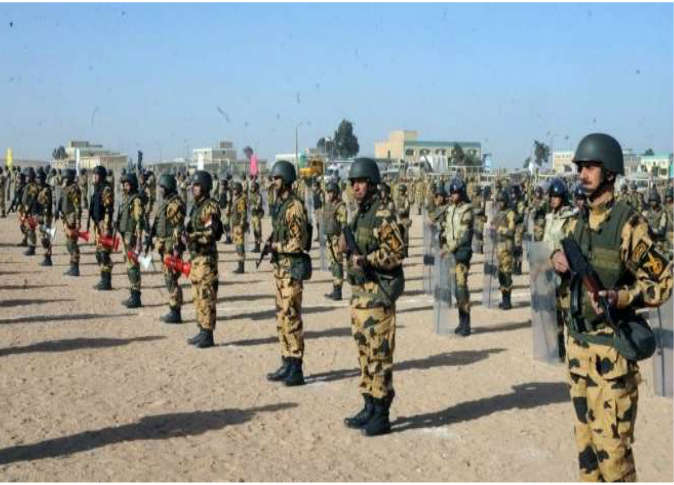
Al-Azhar Al-Sharif, both the mosque and the university, are often seen as a distinguished part of contemporary Islamic history.
The institute is also considered a reference to the ideal of moderate and constructive religious speech, which rejects fanaticism, strife and extravagance.
Al-Azhar may not be a Qiblah (i.e. a direction which Muslims turn to in prayers), or a place that many people go to visit for a particular reason or a destination for religious tourism, but it is for sure a great Islamic civilizational and scientific edifice not only for Arabs but for Muslims all over the world.
The big question here is: Does Al-Azhar Al-Sharif nowadays play a role in religion and in politics, one which suits its history, rank and great consensus of Muslims?
Some sources indicate that the main reason for constructing the Al-Azhar mosque was as an invitation to Shiiasm.
But, in a short amount of time due to various historical incidents and political changes in Egypt it has since become a pillar of Sunnism. However, education in its university does not only include this doctrine, but also includes other different Islamic schools of thought.
The university of Al-Azhar, attached to the mosque of Al-Azhar which was built during the Fatimid age. is the greatest religious and scientific Islamic institution.
The Al-Azhar mosque was specialized as an official state mosque which the country had approved as a pulpit to its religious call and a symbol to its spiritual supremacy.
The University of Al-Azhar is the amongst the oldest in the world, surpassed in age only by the Az-Zaitoniah and Al-Qarawieen universities. To this day it remains a destination for learners who are concerned with religion and general sciences
It is distinguished by its flexibility, openness and inclusiveness, matters that are not found in other legal, educational institutions.
This openness revives hope that our Islamic Ummah institutions are able to reach Muslims with different tendencies, motivate brotherhood among different Islamic groups and doctrines, and respect the privacy of each of them.
But, regretfully, there is strife among us Arabs and Muslims that has brought suffering, crises and even wars. Tihs has become a weak point exploited in different fields, not just in religion but to politics and society as well.
And I think that no truly believing Muslim finds any wisdom or logic in separating Muslins due to difference in interpretation in a faith that is united and collective by its very nature. Difference does not corrupt intimacy among people, but it richens intellectual experiences and shows greatness of the Quranic text, for what it contains of flexibility and linguistic vision that requires much deep and renewable thinking.
Moreover the Word of Allah was not revealed to us to dispute, separate and stick to one vision.
It was revealed to us to use our mind to accept our differences and enforce our unity under one slogan, in spite of individual distinctions.
Al-Azhar has proved that it is the most eligible center to this duty. Its moderate tendencies are clear in its religious, political and social aspects.
In addition to the above-mentioned, rationalism, moderation and openness were the messages of Al-Azhar since its construction. It did not find difference between religion and science. Since several centuries, it has stressed on importance of science, when Ibn Khaldon, the founder of sociology, set in it his scientific episodes. Also Al-Hasan bin Al-Haitham, the first founder of opticits, who devoted himself for research and authorization.
And from Al-Azhar University, presidents, ministers and ambassadors of different and several nationalities have graduated. Up to now, the university of Al-Azhar is still keeping abreast of the times to development, civilization and advancement as much as possible.
Nowadays, it includes six hospitals, four colleges of Medicine and three colleges of Engineering, Pharmacy and Dentistry.
Accordingly, the role of Al-Azhar did not only cover the religious side, but it also serves science and society.
During the Mamluk era, the institute saw great advancement as an distinguished educational center. Its library was provided with the most important books and rare manuscripts, until it had become one of the largest and greatest libraries in the entire world for its treasuries and valuables.
Politcally Al-Azhar played a crucial role in confronting the French Campaign against Egypt. Its Sheikhs even led two revolutions of Cairo, the first in 1798 and the second in 1800 – its pulpit was for the whole of Egypt. Egyptians kept following Al-Azhar until the French departed in 1801. Then scholars of Al-Azhar led a revolution in 1805, and chose Muhammad Ali as a ruler over Egypt.
It is not possible to neglect the role of Al-Azhar in Popular revolution against the British Occupation to Egypt in 1919. The leader of this revolution was Sa’d Zaghlol, who learnt in and graduated from Al-Azhar.
But it is sorrowful that this advancement was not continuous. Delivering speeches in Al-Azhar was suspended for a century during the age of the Ayubite State, which was considered the transitional period from Shiasm to that of the Sunnah.
In addition, the role of Al-Azhar deteriorated at the emergence of “the Modern State” by Muhammad Ali, when he obligated a new authoritarian social system, excluding educated Muslim scholars from its leading role that they were previously performing it.
Moreover, economic and financial elements affected the role of Al-Azhar. Support of Muslims to Al-Azhar declined because the government took over its endowments during certain periods, and the Ministry of Endowment was intervening in some of its affairs. This limited the leadership of Al-Azhar in guiding Muslims all over the world and gathering them under one Islamic slogan. Indeed its history clearly shows that Al-Azhar was already walking towards this direction.
However this declination does not mean losing hope or motive.
But on contrary, restoring the role of Al-Azhar is the responsibility of all Muslims; countries, peoples and governments, for benefits it will bring to the Arab and Muslim worlds from one side and to the humanity from the other side. There is no problem to benefit from the identical experiences; such as experience of the Vatican.
The Vatican was able, in spite of a history of contrasts and wars, to build for itself a collective and vital role.
It made use of its religious Catholic reference to serve many world humanitarian issues; benefiting from its distinguishing geographic and historical site, its ability on renewal, its flexibility and inclination to cope with latest developments, and the support that it was receiving from believers, countries and governments all over the world.
The Vatican has established a distinguishing diplomatic system, which represented an important role in supporting its religious, cultural and humanitarian presence. In addition, many Popes, who occupied chair of the greatest Priest, cared for playing roles in political, economic and humanitarian fields.
They also occupied effective positions in some non-profit European and world organization.
The Vatican also proved its seek to associate between religions, countries and societies. And it did not neglect to condemn local, international and regional wars and disputes. It is fortunate that Al-Azhar participated with it in one of the most important worldly events; the document of Humanitarian Brotherhood, which was signed by Pope Francis and Imam At-Tayeb in 2019, under the official patronage of the United Arab Emirates.
It is not surprising that Al-Azhar Al-Sharif owns, especially nowadays during the age of Imam Ahmed At-Tayeb, all elements to restore its presence, something that is important for the Arab, Islam and the whole world in the same manner.
And whatever this purpose requires of support of governments and religious, social, economic and political references to restore its endowments or create new ones, it is little matter that introduced us walk on the way towards uniting the Muslims under the slogan of moderation and openness.
And what makes this matter deserves much importance is that we are living in the age of separation, dispersion and hatred which our Islamic Ummah faced during the last ages.
Al-Azhar Al-Sharif is not any lesser than the Vatican.
While the Catholic Church during the Middle Ages was controlling knowledge, fighting scholars and igniting religious wars, Al-Azhar was creating a leading institute advancing civilization, nationally and internationally and was showing great efficiency and ability to have effect on different issues.
Accordingly, the restoration of Al-Azhar in this role is possible as long as desire and work faithfully are found.
This responsibility does not only fall on the shoulder of people of Al-Azhar or Egypt alone, but it is also collective and general. Every concerned and powerful person should bear it.
As a result, Al-Azhar can perform its expected role in establishing foundations of moderation, brotherhood and love, and in carrying the virtues of openness and moderation against fanaticism and accusing people of apostasy, and in moving forward to restore peace in the Middle East and the world.




